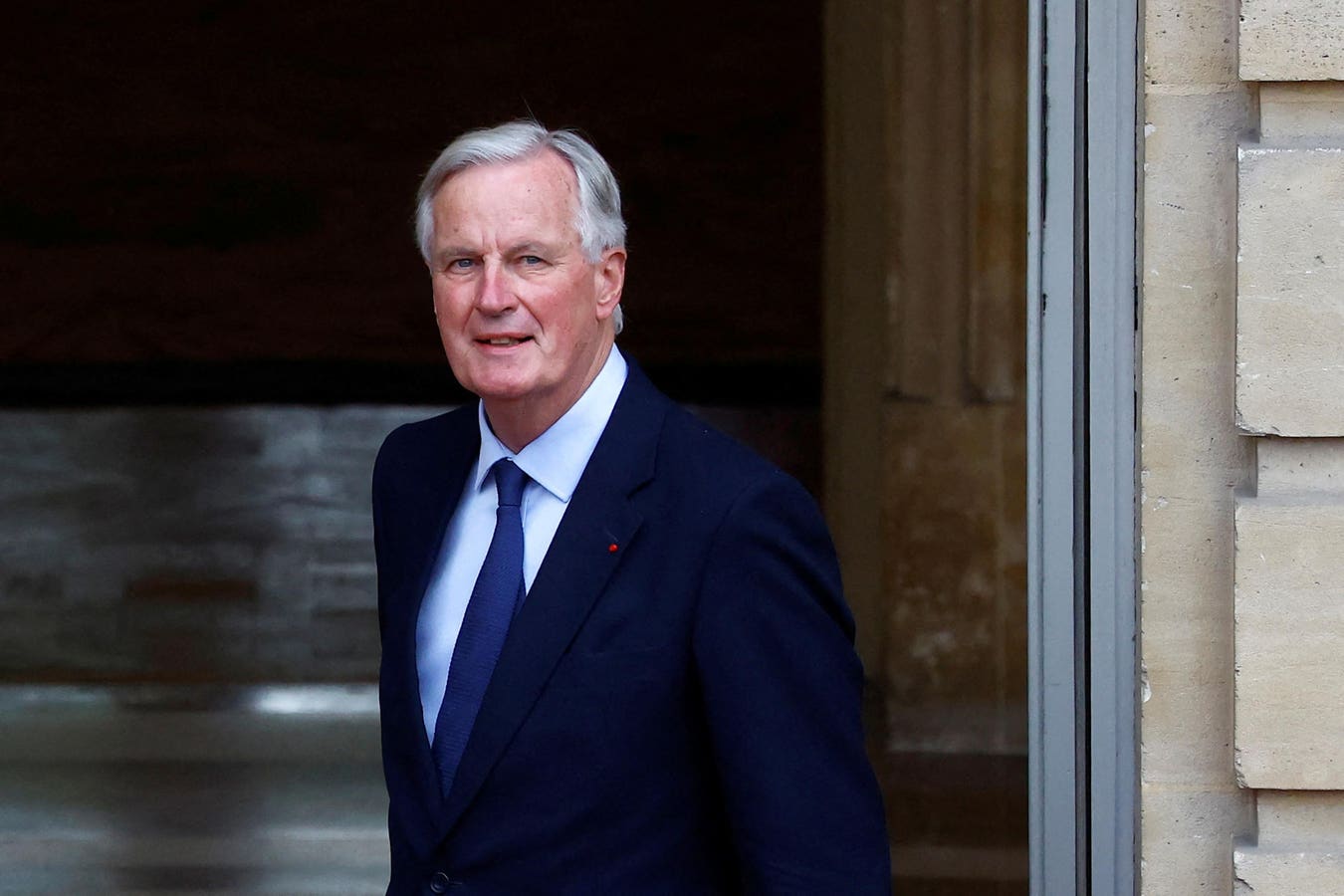French Prime Minister Michel Barnier looks in Paris, on September 5, 2024. (Photo by Sarah … [+] Meyssonnier / POOL / AFP) (Photo by SARAH MEYSSONNIER/POOL/AFP via Getty Images)
POOL/AFP via Getty Images
The French Prime Minister has said he does not believe Italy’s scheme to send asylum seekers to Albania for processing is something France could emulate. It comes as the Italian scheme, only newly activated, has been hit with its first significant legal obstacle.
The Albania scheme, in theory, would see asylum seekers prevented from reaching Italy by sea, instead taken to non-EU member state Albania for detention and processing. Speaking at a press event at the Italian-French border with Italian Foreign Minister Antonio Tajani, France’s Prime Minister Michel Barnier said he did not think the scheme would be “transposable” to France, for “legal and institutional reasons.”
An offshore processing scheme could otherwise have been quite easily imagined under Barnier’s premiership. An immigration hardliner, he is known for having suggested in 2021 France close its borders to all immigration for a period of time. His pick for interior minister in his new cabinet was the stridently anti-immigration Bruno Retailleau and the two are working on a new immigration bill which is expected to curtail the rights of asylum seekers and undocumented migrants.
While ruling out an offshoring scheme, Barnier did note that he was keen to see France work more with countries that irregular migrants tend to pass through or depart from on their way to seeking shelter Europe. This is a strategy, known as “border externalization,” that the European Union as a whole and individual member states have pursued for some time, particularly with countries in North Africa such as Libya and Tunisia. Such schemes are similar in many ways to the Albania scheme. In both, the responsibility of protecting the wellbeing of asylum seekers is handed over to a non-EU country, with limited capacity for oversight. Both schemes too have been criticized as representing the failure or abdication of Europe to live up to its international humanitarian obligations.
Barnier’s dismissal of an Albania-style deal, while somewhat surprising given his interest in other similar schemes, is likely reflective of a slightly more pragmatic approach than the one Italy has pursued. Offshore detention and processing of asylum seekers is untested waters for the EU. Such schemes are possibly in violation of both international and European law, and there is European Court of Justice precedent which seems to suggest the Italian scheme will be struck down.
The Italy scheme has already seen its first major legal challenge, almost as soon as it began. The first group of asylum seekers sent to Albania numbered sixteen people from Bangladesh and Egypt, countries Italy deems ‘safe’ to return people to. Within days, an Italian court ruled, citing that previous European Court of Justice ruling, that the government could not lawfully send these people to Albania as their definition of a ‘safe’ country was invalid.
The government has said they will appeal, but the ECJ ruling could be a critical obstacle to any more people being sent to Albania, as it gets to the heart of Italy’s justification for being able to send people. The list that Italy uses of ‘safe’ countries includes many countries where conflict, persecution and other forms of danger are extant in some regions. This, according to the ECJ, means that the entire country cannot be ruled safe. Given that the list includes many of the countries from which people flee to Europe, if the ECJ ruling stands then it would mean Italy might be prevented from sending a majority of the asylum seekers that it wants to.
Whether Michel Barnier was aware of this first legal snag when he ruled out “transposing” the scheme to France is unclear. What is clear, however, is that he seems to appreciate the immense legal and technical difficulties in enacting such a scheme and may be keen to avoid spending the nearly three quarters of a billion dollars Italy has spent on theirs.
